Years ago, if you were an aspiring teenage entrepreneur, your options were pretty limited. You’d probably end up spending your evenings changing diapers as a babysitter, or covered in grass stains after a weekend mowing your neighbors’ lawns.
But those days are over.
Thanks to the rise of online businesses, teens can leap into entrepreneurship by running businesses operated entirely out of their bedrooms.
Teens today are growing businesses and making serious cash through vlogging, podcasting, social media consulting, and ecommerce businesses. And these hustlin’ teenagers are getting started before they’ve even graduated high school.
Marc Popov and Noah Seibert from Berlin, Germany, were just 17 when they started their first business, an ecommerce store built using dropshipped products.
But when you’re only 17 years old and wading into the murky waters of business for the first time, you bet that you’re going to find yourself facing a few challenges.
“It was our first business, so we ran against the wall, literally,” Marc laughs.
But a year later, they’ve emerged on top.
I spoke with them about the journey of running their first business and the lessons they’ve learned along the way.
Editor’s note: We’ve chosen to protect Marc and Noah’s business from extra competition by not revealing the name of their store. That said, we’ll be taking a deep dive into their product research tips, sales results, and sharing their tips for success.



1. Remember 1+1=3, So Don’t Try to Do It Alone
If it weren’t for Noah, Marc would have never started. In 2017 the two best friends were in their final year of high school in Berlin, Germany. Bored in class one day, Noah came to Marc with an idea.
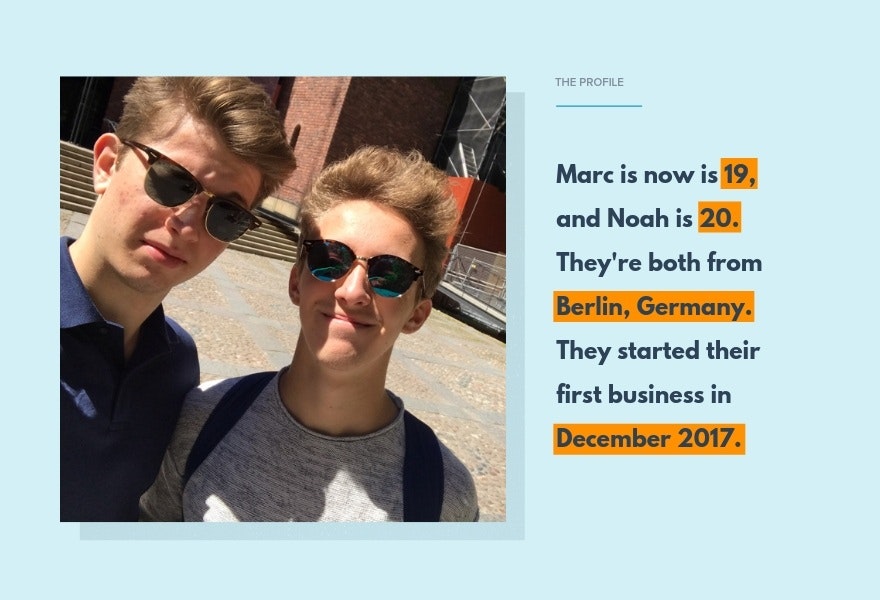
→ Click Here to Launch Your Online Business with Shopify
“He was always eager to find new business ideas,” Marc says. “He wanted to find something easy for beginners to start and easy to learn. That’s why we started dropshipping in the beginning.”
Marc had never heard of dropshipping before, but as Noah explained the concept to him, he got more and more curious.
For anyone scratching their heads over what dropshipping is, here’s a quick primer: A dropshipping business is similar to a regular ecommerce business, but with the added advantage of not having to handle your inventory. You’ll save yourself the hassle of packing, delivering, and storing your inventory because your supplier will hold onto all of it for you. Once you’ve made a sale with your store, you’ll pay your supplier, and then they’ll ship the product directly to your customer.
Up to speed? Okay, let’s jump back in.
When Noah and Marc decided to start a business, they knew that they needed each other to make it work. “We would have never had the courage to start all this alone,” says Marc.
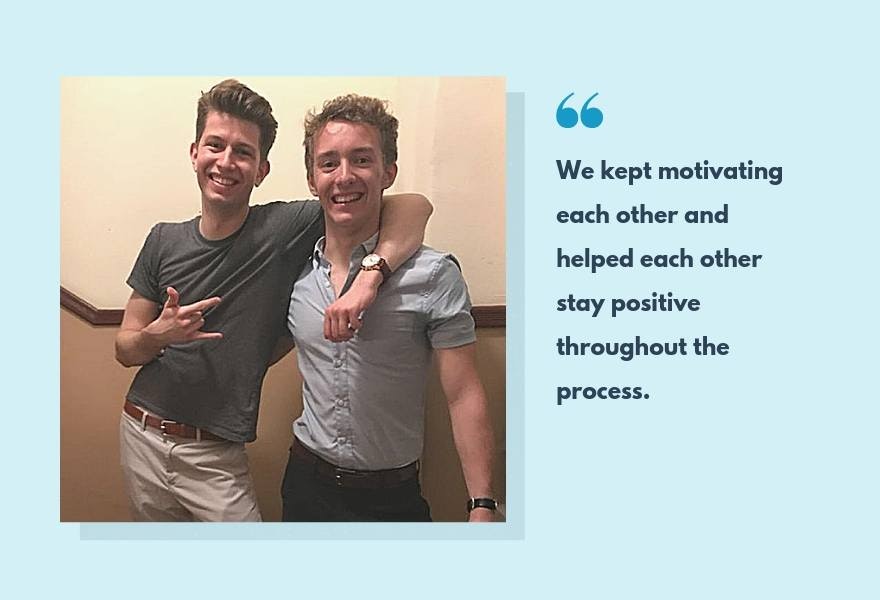
In moments of doubt, they relied on one other. “We kept motivating each other and helped each other stay positive throughout the process. If he didn’t feel good about something with the business, I helped him get through it and vice versa,” Marc says.
And the admiration is mutual. “Marc is the best business partner you could imagine,” Noah says. “He’s super reliable. I can always call him if something happens, even at 4 a.m.”
At the end of the day starting a business is hard enough, so it’s worth trying to find another person to help motivate you and carry some of the weight. And if that person is your best friend, and they’re happy enough to entertain your 4 a.m. phone calls when you’re buzzing with new ideas? Even better.
UPDATE: We caught up with Marc again to shoot this awesome video about dropshipping niches. Follow Marc as he shares his pro tips for picking the right niche for Shopify dropshippers in 2019:
2. Just Because You’re Passionate About It, Doesn’t Mean It Will Sell
Follow your passions. Sell the things you love. That’s the kind of advice you hear all the time. It’s advice I give people all the time. But sometimes it just doesn’t work.
When Marc and Noah launched their first store, they followed this advice. They were both into fashion and wanted to run a business that helped celebrate it. Their first store, Simon and Nikolay, launched in November 2017. “It’s a fashion store that was designed to dropship fashion from AliExpress,” Marc says. “But this didn’t work quite as well as we thought it would.” The store got a few sales, but never really went anywhere. For now, the website is still live and is operating primarily as fashion magazine.
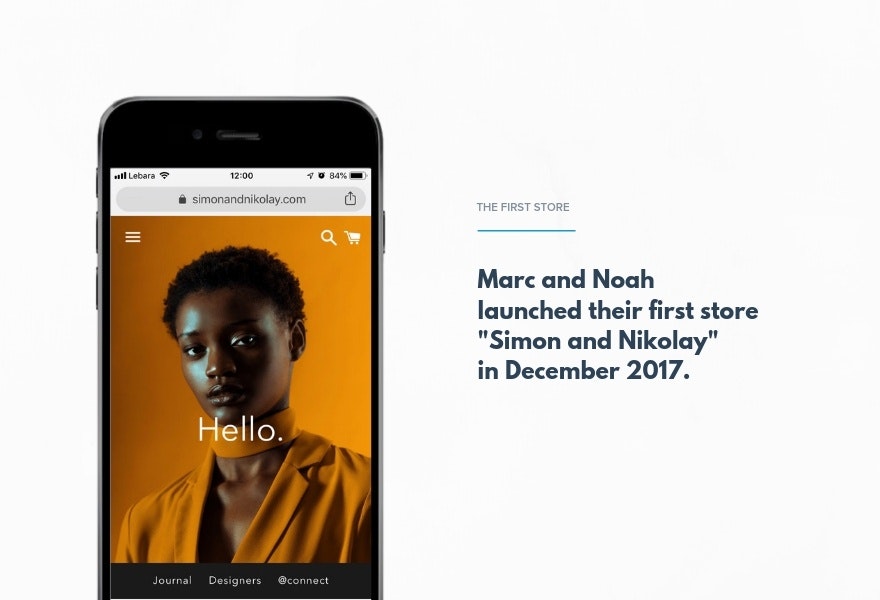
The problem with choosing a fashion store, Marc thinks, is that for people need the trust of a familiar brand before they purchase. “A fashion store needs to be a brand to be very successful in my opinion,” he says. “That credibility we just didn’t have in the beginning.”
A few months into the business, when it became clear that their fashion business wasn’t taking off, they started to look for other options. This time, they took a more methodical approach and used tools like Google Trends and Facebook Audience Insights to analyze opportunities in different product categories.
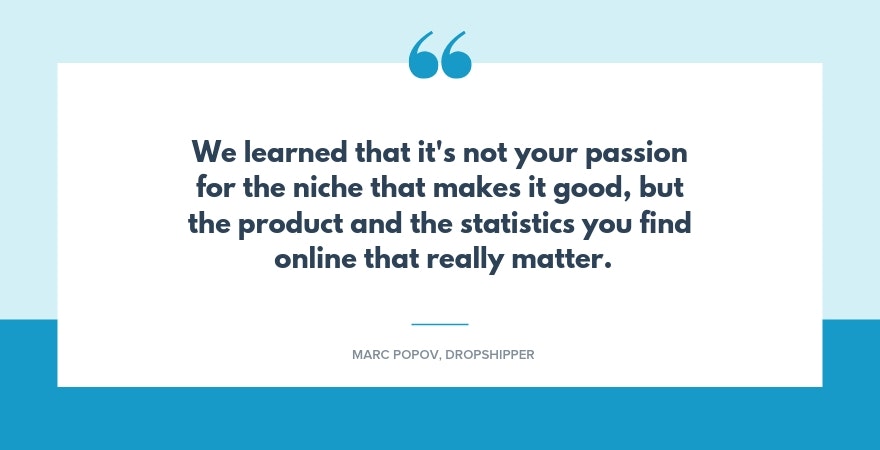
They analyzed the size of potential markets and the level of competition in each. By doing this, they narrowed their ideas down to three different product niches they thought had the power to take off:
- Outdoors products
- Home decor
- Electronics and gadgets
“We learned that it’s not your passion for the niche that makes it good, but the product and the statistics you find online that really matter,” Marc says.
3. Figure out What to Focus on (Hint: It’s Not Your Logo)
When you’re starting your first business, it’s easy to get caught up on perfectionism. You can lose days or weeks obsessing over your logo, tweaking it endlessly to get it right. You might delay the launch of the business until your website looks flawless. All the while, you’re losing opportunities to capture potential sales.
The truth is, you’re better off getting the basics done and then launching anyway. Thanks to the range of themes available from Shopify, getting your store looking great shouldn’t take long. The marketing is the bit that takes time to master.
By the time Marc and Noah launched their second store, they knew what to spend time on and what was worth skipping over.
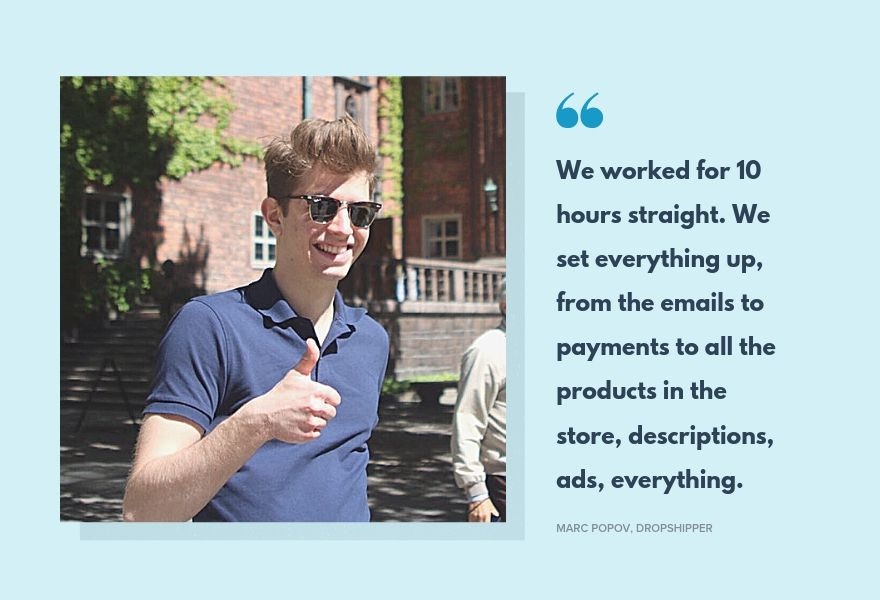
“Our first store we took a week or so building it,” Marc says. “But for the second store, we knew how everything was going to be structured, and we sat down and worked 10 hours straight. We set everything up, from the emails to payments to all the products in the store, descriptions, ads, everything. For 10 hours straight.”
Then (after sleeping for the next 12 hours), they switched their focus to marketing.
4. You’ve Gotta Risk It for the Biscuit
Like any business, even one with low startup costs, you’ve gotta invest some money in before you can expect to get something back out. Wisely, Marc and Noah took this into account when starting their business.
“We started with $1,200,” Marc says. “Most people start with $500 or something because they’re scared of losing their money. But from the beginning, we knew if we didn’t risk the money that we wouldn’t be able to make any money. So we risked $1,200.”
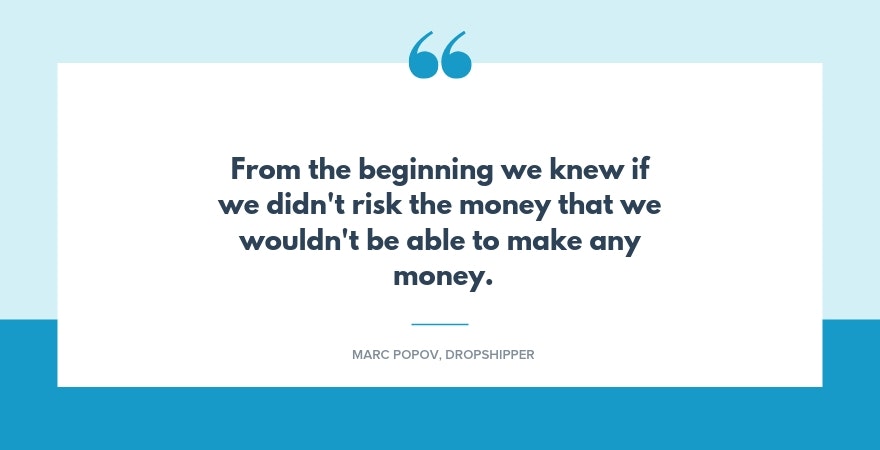
And it is a risk.
Take a deep breath and prepare yourself for the possibility that you could lose it all.
Marc and Noah got very close.
“In the beginning, we lost almost all of it. We were left with $300 before our store started making money,” Marc says. “Our first store ate up a big part of the budget already. So when we started the second store, I don’t remember how much money we had left, but it wasn’t very promising, honestly.”
Noah remembers how difficult it felt: “It was tough when we were still researching products and getting barely any sales.”
With a dropshipping-based business, most of this money should go towards testing your product ideas. Allocate your budget to creating multiple advertising or influencer marketing campaigns to see which products your audience responds to.
“At the beginning, we were on a pretty strict budget. So we weren’t able to test five things at a time and kill four of them and stick with one. That’s not how we did it. Basically, we tested for three days a new product niche, learned all of the results, and improved on our next ads.”
Then after moving through a series of different products in the outdoor and home decor niches, they landed on a winner.
“We stumbled over our electronics and gadgets niche and immediately started getting sales there.
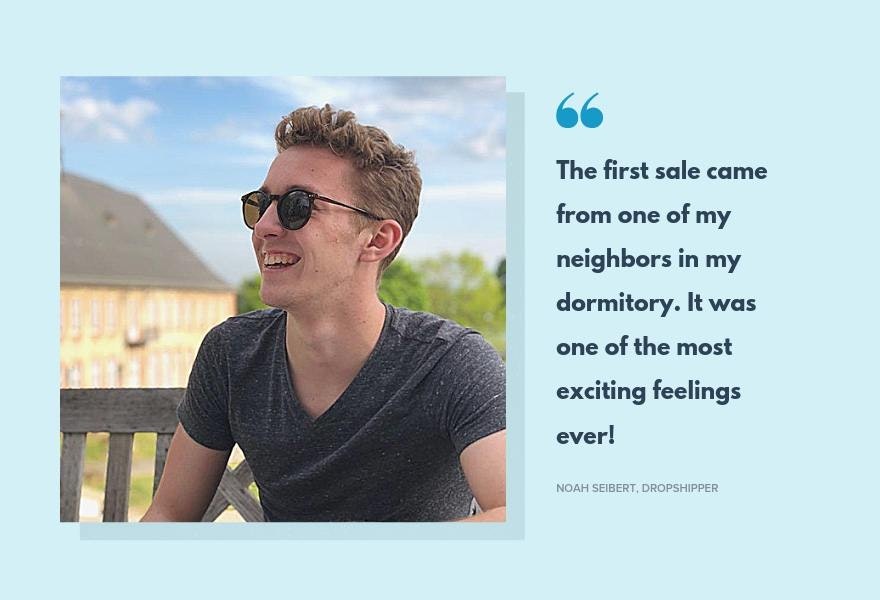
5. Don’t Complicate Things, Stick to What Works
When you find something that is working, your next challenge is not to overcomplicate things.
Stick to what’s working, and scale.
From all of their product testing, there was one product and ad that stood out. Their winner was a simple but functional phone case. And they noticed that nobody else was really selling it.
After finding something that worked, they simply did more of it. They scaled their ads, increasing the budget and reaching out to new audiences to pull in more customers.
And it worked.
“It’s pretty astonishing how this one ad copy we made in the beginning in five minutes ended up generating over $30,000. That’s pretty crazy,” says Marc.
“Our website has a lot of different phone cases, but this particular case sells the most. 80% of our profit comes from this one phone case.”
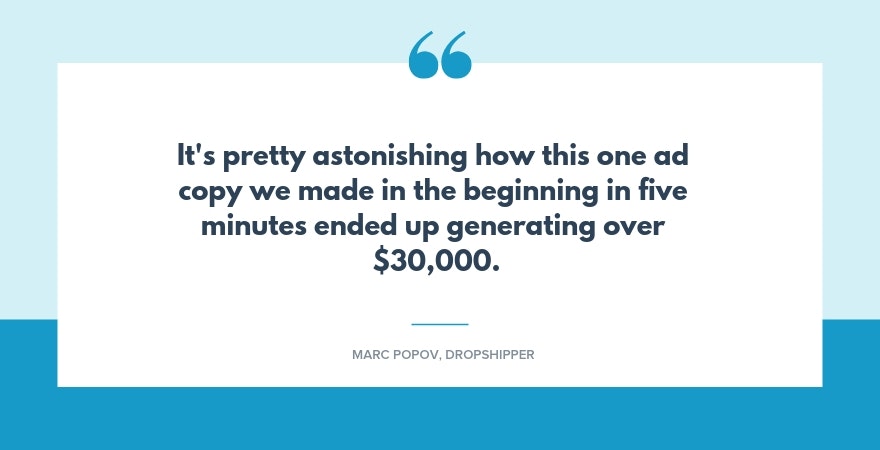
6. You Might End up Somewhere Unexpected. Embrace It.
As full-time university students, Marc and Noah both find themselves running out of time for the business. They’ve decided to list the store for sale on Exchange Marketplace, to find a new owner to pick up where they’ve left off.
They’re both also dedicating more of their time to a new business: social media consulting. Learning Facebook advertising for their store was a trial by fire, where they learned quickly what works and what does not. Now they’re both in the position to pass this knowledge on to other ecommerce entrepreneurs. Continuing the dynamic of their great partnership, Noah works on marketing and acquiring new clients and then passes them over to Marc to handle the coaching sessions.
As our chat comes to an end, Marc shares a piece of advice for anyone thinking of starting, but having trouble finding the courage: “Even if you start and it ends up being not what you expect, it will end up being a great life experience.”




Want to Learn More?
- How This Teenage Entrepreneur Built a Booming Art Business From His Bedroom
- An Inside Look at the Mindset of a Successful Entrepreneur
- 5 Unusual Business Ideas From Multimillion-Dollar Entrepreneurs
- The One-Product Business: This Entrepreneur’s Simple Formula for Success
- The Ultimate Shopify Dropshipping Guide
